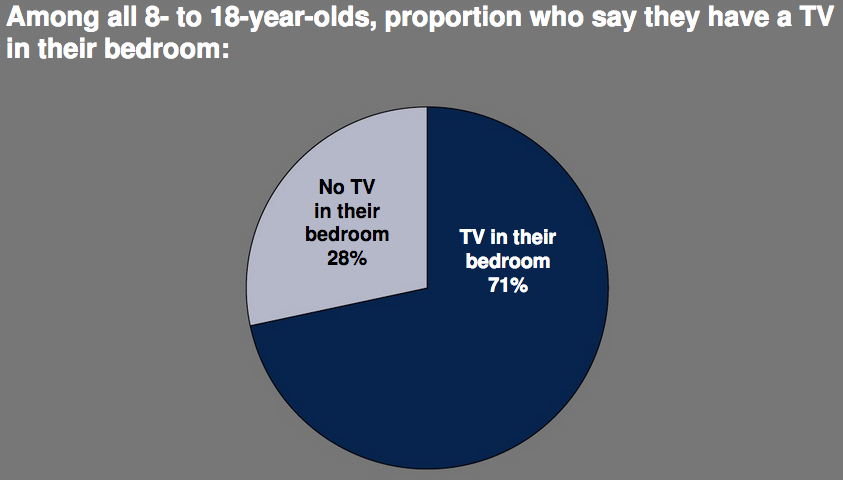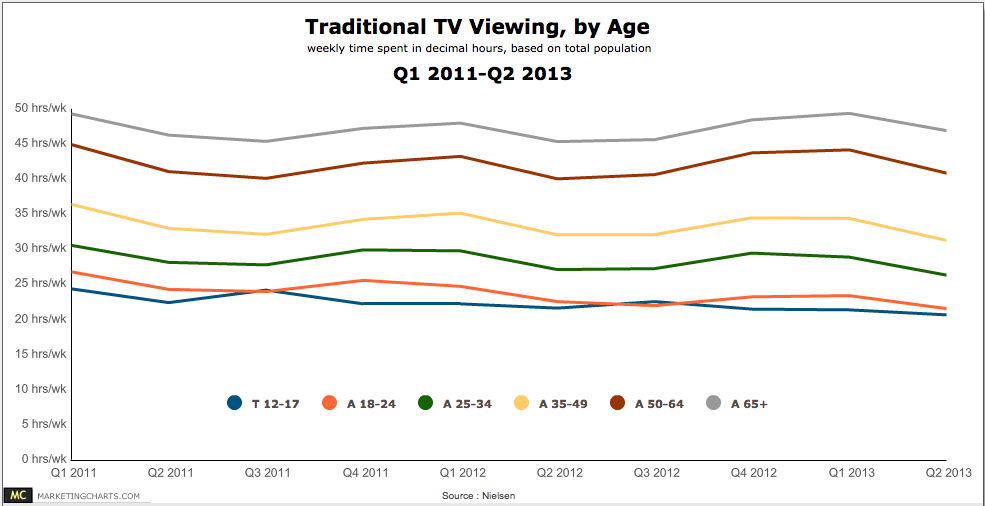The Myth of Teens Rejecting Television
TV is dying, supposedly, but even the youngest, most app-scattered Americans still watch 20 hours of it a week

Teenagers' favorite technologies and online behavior has a way of predicting the entire country's favorite technologies and online behavior. From Facebook, to mobile-phone addiction and Snapchat, the habits we dismissed yesterday as silly and childish have a way of going national.
So what does that mean for the future of TV?
Ever since the emergence of Netflix and other Internet-based video options, people have been predicting the "death of television." There are facts behind the hyperbole. Pay TV is having its worst year ever. Ratings are falling across most networks, and traditional TV's share of our attention is slipping. But television's optimists have facts, too. Overall, Americans are watching more "TV" than ever when you include time-shifted TV and Internet videos.
There’s a sense that, with the proliferation of screens and devices, young people are turning away from TV faster than the rest of the country in a way that predicts that cord-cutting is poised to fell the TV industry. In fact, Nielsen’s latest cross-platform report shows that teens (a) have always watched less TV than older Americans; (b) are watching slightly less traditional TV than they used to; but (c) aren't exactly fleeing the living room screen.
A Kaiser study found that more than 70 percent of teens had a TV in their room:
Meanwhile, the average teenager still watches almost three hours of television per day. That's about half as much as the 65+ crowd, but still. Twenty hours a week? That's a part-time job.
Another graph (this one showing young U.S. and Canadian audiences) offers a glimpse at television's future, if we buy the hypothesis that young people guide national attitudes toward media. Let's break this down: One in three young people only watches old-fashioned TV; 12 percent cuts the cord and doesn't pay for the cable bundle at all; and the rest—about a half—pay for TV and mix in OTT (over-the-top, or Internet-enabled TV).
This suggests a near future for TV where new technologies aren't replacing television so much as complementing TV. When you count up all the different ways to watch a TV show (live, saved, time-delayed, on Netflix, on Hulu), as Peter Kafka writes, you're watching more TV than ever.


